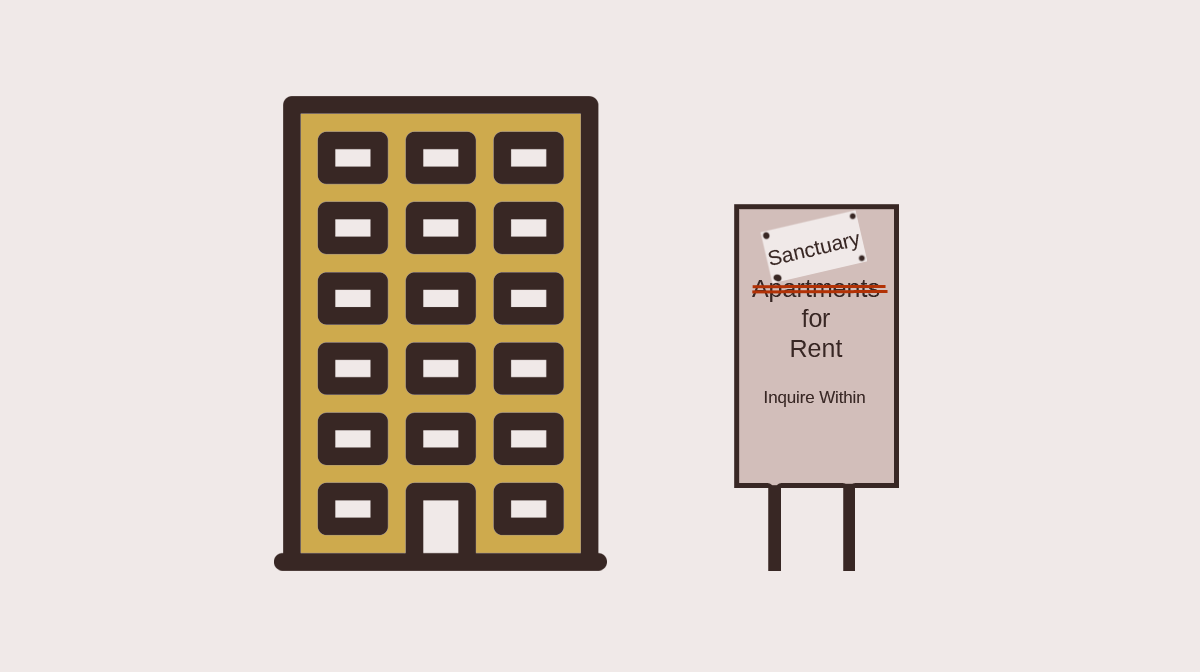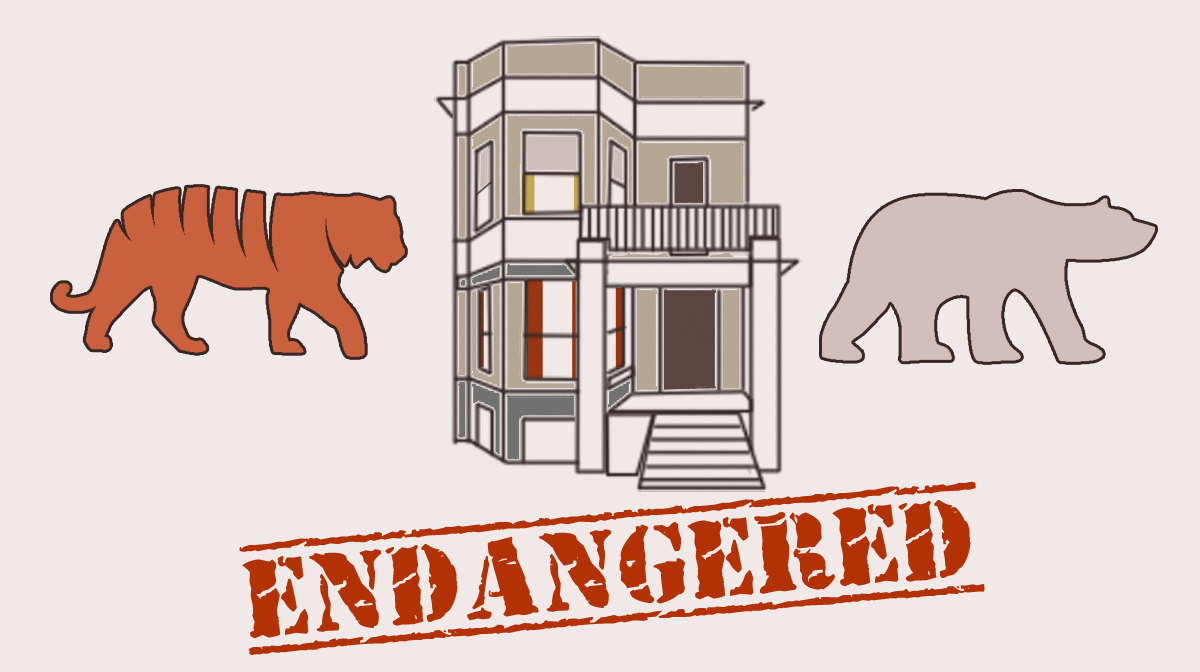Last week a group of aldermen proposed an amendment to the mighty Chicago Residential Landlord-Tenant Ordinance (CRLTO) with the intent of enforcing Chicago's current efforts to serve as a sanctuary city. Leading the charge are Deb Mell and Carlos Ramirez-Rosa, of the 33rd and 35th ward respectively. These changes attempt to protect immigrant renters from being raided and deported within their rental residences. We think this is a fabulous idea. However, knowing how the CRLTO is used in real life we have some concerns about how this amendment will affect the rental community as a whole once put into practice.
The full text of the proposed amendment is included below for your review.
2017-09-06 proposed CRLTO amendmentThe CRLTO does not cover every apartment within the city limits. Many undocumented immigrants live in small buildings owned by on-site landlords - these units would not be protected by the proposed amendment. Beyond this issue, we've got some specific concerns with each proposed change.
Change #1: Citizens vs Residents.
This one is pretty mundane. The word "citizens" is replaced with "residents, regardless of immigration status" in the opening clause of the ordinance in reference to the intended targets of the law. To us it's a little jarring to suddenly launch into immigration issues in the middle of a document that otherwise deals entirely with landlords and tenants, especially when other protected classes get no such mention. If you're going to say "regardless of immigration status" you might as well also throw in "disability, race, advanced age, source of income," etc.
We understand that they're trying to create a welcoming atmosphere, but invoking immigration in this setting reminds us of the notorious vegans who insert their dietary choices into every conversation.
Will it make Immigrants safer? Nope.
Will it make life better for most Chicago renters? Not really.
Predicted lawsuits: None.
Predicted impact: Minimal.
Rating: A for Effort, C for implementation.
Change #2: No Warrant, No Cry.
The CRLTO dictates the acceptable reasons a landlord could use to enter an occupied apartment, along with things like advanced notice and acceptable hours of entry. The amendment would bar landlords from allowing law enforcement to enter an occupied apartment with them unless they have a search warrant. If the landlord isn't around to grant access, law enforcement officers (LEOs) still would not be able enter an occupied apartment without a search warrant.
Some readers will think that this simply reinforces the fourth amendment to the US Constitution, which protects individuals from search and seizure of property without a warrant. Alderman Rosa has stated that this clause responds to modern Immigration and Customs Enforcement (ICE) tactics of entering a building's lobby and forcing their way into every apartment to check residents' immigration status, deeming a lack of "papers" to be sufficient probable cause for literally unwarranted searches. The aldermen have good intentions. These sorts of roundups are wholly despicable.
However, many times when cops are called to an apartment building it has nothing to do with immigration. They may be following up on noise complaints or performing wellness checks. This change does not allow for such emergencies, or "exigent circumstances." We have seen the chilling effect that "crime free housing" policies have had on low income renters in the suburbs. They have caused abuse victims to refrain from calling for help out of fear of getting evicted. Tinkering with law enforcement's ability to provide help when needed, especially among the most vulnerable parts of the population, will not end well.
Additionally, we must remember that apartment buildings are not only residences but places of business. There are superintendents, maintenance workers and doormen who both work and live at these buildings, many of whom are undocumented immigrants themselves. Are they protected as well? How about the many mixed use buildings with retail establishments on the ground floor? Will business owners in these buildings be responsible for demanding to see a warrant from any LEOs that enter their shops and restaurants just because they share walls with apartments? Will these business owners be protected from ICE raids on their employees and customers within their shops?
Inversely, we must also remember that LEOs including ICE agents must live somewhere as well, and they must be allowed to view apartments before renting like everyone else.
Will it make Immigrants safer? Probably.
Will it make life better for most Chicago renters? Not really.
Predicted lawsuits: Landlord shows an occupied apartment to an off-duty police officer who's looking for a place to live. Current occupant sues landlord for allowing LEO access without a warrant. Neighbor hears a woman screaming and calls the cops. The cops enter and find she is being beaten by her husband. The husband later sues the landlord for allowing the cops to enter without a warrant.
Predicted impact: Enormous.
Rating: D. Ham-fisted attempt without consideration for edge cases.
Change #3: Bolt the Revolving Doors!
The third change within the amendment would require landlords to install auto-locking deadbolts on all front and rear street entrances in buildings with multiple apartments. These bolts would require key access from the outside and latch access from the inside. The intent is to allow residents to bar ICE agents from just wandering into the building and rounding up residents.
This is the one that's getting most of the attention so far because it will cost landlords money. Also because for many buildings it may well not be possible. This clause would only arise from the minds of authors with very static, uniform mental images of apartment communities. We have established in a previous article that there are very few renters on the city council. Mell and Rosa both work and live in areas that are dominated by vintage walkup properties, and the deadbolt scenario works for them. But they forget about high rises, individual rented condos within condominium complexes, motel-style properties without central lobbies, coach houses and all those converted vintage hotels in Uptown.
We're of the opinion that no renter should choose a building without deadbolts on the exterior doors but we know that this is not a realistic expectation. There's big buildings with revolving doors. There are fire escapes and mail foyers. There are parking garages. There are buildings with thousands of tenants, each of whom would have to get a copy of the new deadbolt key. There are apartment locator services that keep keys for agent use. We also take issue with the specific phrasing, "from the inside it must be opened by turn knob or handle only." What about intercom systems? Buzzers? Doormen? Are we looking at a situation where Chicago renters will have to go down to the lobby every time they have to let a guest into the building?
Not to mention that deadbolts (and walls for that matter) only serve as barriers until one resident on the inside decides to open them. It only takes one person to open that door or leave it slightly ajar and your deadbolt is rendered totally useless. As soon as the first tenant locks themselves out there will be tape plastered over every bolt and latch.
Will it make Immigrants safer? Nope. In fact it may increase danger by creating a false sense of security.
Will it make life better for most Chicago residents? Possibly if it's actually enforced, but we don't see it happening and suspect that this clause will be struck before the amendment passes.
Predicted lawsuits: The number of renters who will use the absence of deadbolts on exterior doors as a reason to break their lease will be off the charts. They may also sue because the installation of deadbolts prevented them from receiving mail for a prolonged period of time. Someone will sue because the bolts prevented them from escaping during a fire. Someone will sue because they get trapped outside a roof deck during a storm.
Predicted impact: Mind-bogglingly huge.
Rating: C. We like the idea but implementation will be a nightmare, and landlord resistance to this one clause could scuttle the entire amendment.
Change #4: No Credit, Big Problem!
Landlords will no longer be able to ask renters about their immigration status. Supposedly this clause does not (and cannot) preempt state or federal laws, nor does it prevent landlords from asking for financial documentation necessary for screening tenants. Except it does.
Most landlords require credit checks, and for a credit check you usually need to have a social security number. The argument can be made that social security numbers were never intended to be used as a kind of unique identifying serial number for human beings. Following the recent Equifax breach all data reliant on social security numbers as unique IDs have become unreliable. This doesn't change the fact that SSNs currently are used in this manner in the application process for many apartments. Landlords can bend over backwards to avoid asking about the "Big I," but if you don't have a social security number it's pretty obvious that you're not from these parts.
Chicago has already implemented this sort of "don't ask, don't tell" restriction on immigration status for its own employees. Several states already have similar protections in place for renters, and property managers in those states have learned alternate means of checking credit that don't depend on the social security number. But local landlords will have no clue what to do if they can't ask for an SSN. It is possible to run a credit check without one, but it's definitely a challenge and you usually don't get back any useful information. Renters will need to be prepared to bring 12 months of bank statements with them on their apartment hunts.
We anticipate that landlords will respond to this one in the same way they responded to HUD's announcement from last year that criminal background checks might qualify as fair housing law violations. They will ignore it and continue with business as usual. The background checking companies have done a very good job of cultivating a phobia of bad tenants within landlord circles and presenting credit reports as magic armor of protection. In Chicago eviction costs are too high and they take far too long for a landlord to run their business without some sort of screening process.
Will it make Immigrants safer? Yes.
Will it make life better for most Chicago renters? If anything it will make things more complicated.
Predicted lawsuits: Rental applicant on a student visa will sue for being denied housing based on their lack of a social security number. This has already happened in several states where this law already exists.
Predicted impact: Minimal.
Rating: B. Overall a good change, but the whole background check thing will be a headache.
Change #5: Blunting the Sword of Damocles.
The final change expands the definition of "landlord retaliation" to include threatening tenants with deportation or disclosure of their immigration status. Tenants are protected from retaliation by their landlords when they report problems with their building to the government, court, support organizations or the media, when they join tenant unions, and when they request repairs.
The ability to "speak to a manager" about customer service concerns is something citizens take for granted. Undocumented immigrants may be afraid to speak up about problems with their living conditions. As far as we're concerned any edge cases that might arise with this new bit of law are too extreme to merit discarding the change itself. It takes many voices to force improvement of a bad situation. It should be much easier for immigrants to sing in the chorus of complaints about a bad housing situation.
Will it make Immigrants safer? Yes.
Will it make life better for most Chicago renters? Yes.
Predicted lawsuits: Any that might arise would be very extreme cases.
Predicted impact: Medium.
Rating: A. We totally support this part of the amendment.
While we respect the intentions of the aldermen who have drafted this proposed amendment to the CRLTO, we suggest that they all go spend a few days sitting in eviction court and observing - or spend a few years renting - before they commit anything to law.
RentConfident is a Chicago startup that provides renters with the in-depth information they need to choose safe apartments. Help us reach more renters! Like, Share and Retweet us!






